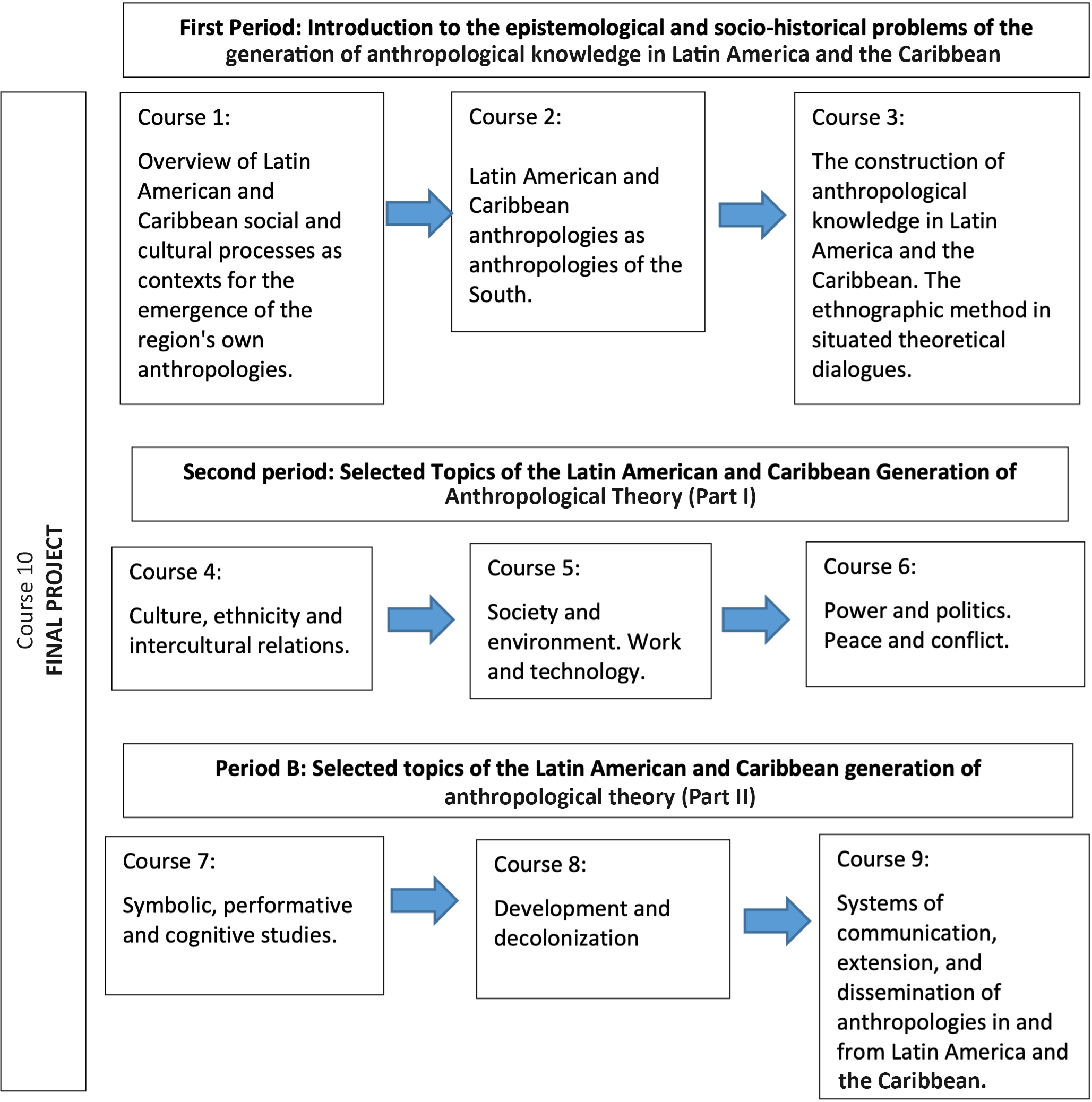An account is required to join the Society, renew annual memberships online, register for the Annual Meeting, and access the journals Practicing Anthropology and Human Organization
- Hello Guest!|Log In | Register
International Diploma in Anthropological Theories in Latin American and Caribbean (DITALC)

The International Diploma in Anthropological Theories in Latin American and the Caribbean (DITALC) is offered by the Universidad Alberto Hurtado, Santiago de Chile, in agreement with the Escuela IDAES - Universidad Nacional de San Martín, Argentina.
Its aim is to project an area of systematic studies on the epistemological, theoretical, historical and social conditions in which Latin American anthropologists have used, produced and tested theoretical elaborations of different origins, to raise and understand national, subnational and regional problems with theoretical and empirical support. This proposal integrates teachers and students from different Latin American and Caribbean academic circles in the mutual recognition and guided and creative analysis of the processes of theoretical-conceptual production, especially of those based on ethnographic research and published in journals, books, edited volumes thematic selections, and new formats for social media.
Main goal
To develop a Latin American and Caribbean academic environment for the systematic training of researchers, teachers and cultural managers in the knowledge, recovery, reflection, analysis, application, and generation of anthropological theories in Latin America and the Caribbean.
Specific goals
(i) To become familiar with the theoretical horizons of anthropology developed in Latin America and the Caribbean,
(ii) To reflect anthropologically and critically on the analysis of ethnographic situations of the continental reality,
(iii) To help young scholars to undertake anthropological research at the regional level, from Latin American and Caribbean theoretical perspectives; and
(iv) To apply the knowledge acquired in cultural intermediation and management scenarios.
Requirements
Candidates must have graduated in bachelor's degrees and professorships in the social sciences, the humanities, communications, and arts. They may be interested in doing research, teaching, management, and intervention in public and private projects related to Latin American populations. Candidates must be able to read and understand written and oral Spanish; reading and listening Portuguese is highly recommended. There are no nationality, age, or gender requirements.
Study plan

Faculty
Araya, Carmen (UCR, Costa Rica)
Comerford, John (Museu Nacional UFRJ, Brasil)
Díaz Cruz, Rodrigo (UAM-I, México)
Diez Hurtado, Alejandro (PUCP, Perú)
Eckert, Chica (UFRGS, Brasil)
Espinosa, Claudio (Universidad Academia de Humanismo Cristiano, Chile)
Fábregas Puig, Andrés (CIESAS-Occidente, México)
García, Fernando (FLACSO-Ecuador)
Guber, Rosana (CIS-IDES-IDAES, CONICET), Program Director
Krotz, Esteban (UAM-I, México).
Maldonado, Salvador (El Colegio de Michoacán, México)
Márquez, Francisca (UAH, Chile)
Mejías Guiza, Annel (Universidad de los Andes, Venezuela)
Rodríguez, Onésimo (UCR, Costa Rica)
Skewes, Juan Carlos (UAH, Chile)
Tocancipá-Falla, Jairo (Universidad del Cauca, Colombia)
Visacovsky, Sergio (CIS-IDES-IDAES, CONICET)
CLASSROOM HOURS: 200
HOURS OF PERSONAL WORK: 350
TOTAL HOURS: 550
UAH CREDITS: 18
TUITION FEE US$ 900

Cart
Search